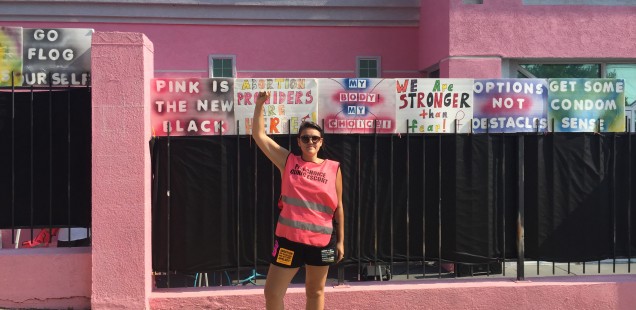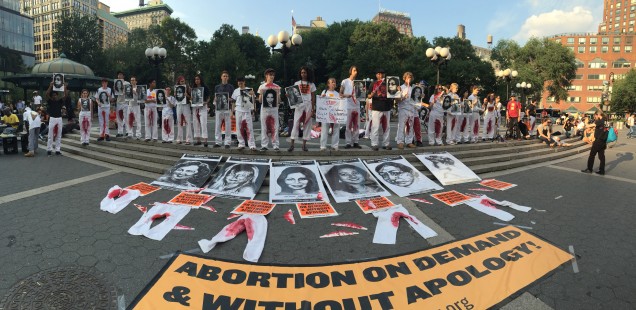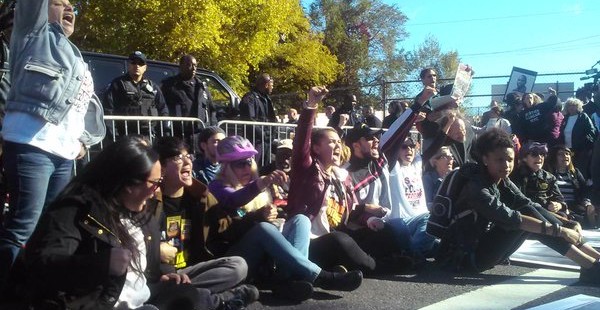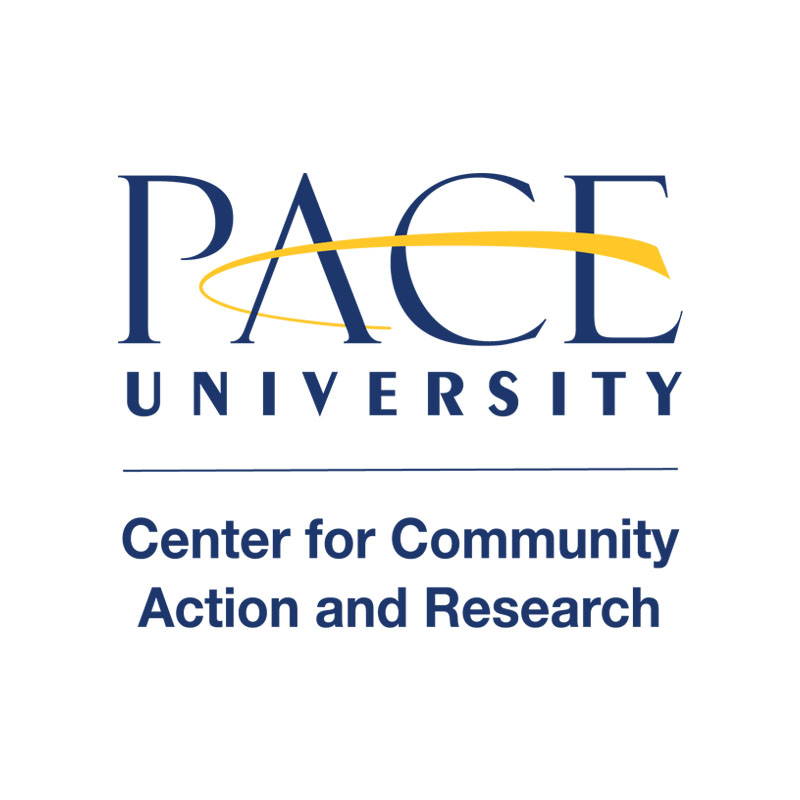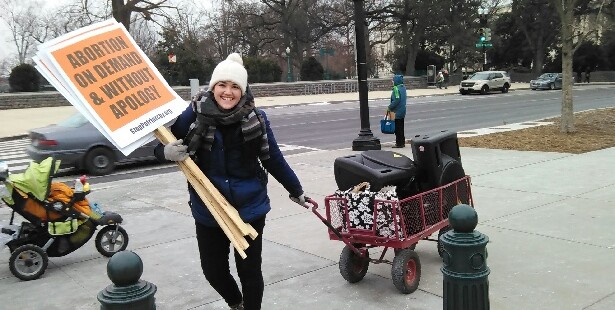
Activist Spotlight: Autumn Taylor
This month’s NYC activist spotlight is Autumn Taylor, a junior Political Science major who has been extremely involved in the #BlackLivesMatter and reproductive rights movements both on- and off-campus. Autumn’s passion for her causes and strong belief in the power of student activism and engagement are inspiring for those who care about any issues of social, economic, and environmental justice – read on to find out more about her and her work!
Year of Graduation: 2017
Major(s): Political Science
Minor(s): Women and Gender Studies
Career Aspiration: Unsure right now! I’d really like to work with LGBT youth, providing a space for them to be comfortable to express themselves.
I strongly believe that as activists, our personal lives and our actions should reflect the ideas we are fighting for.
You’re heavily involved with #BlackLivesMatter and the pro-choice movement. What inspired you to take action on those causes?
I was always strongly outspoken about social justice issues growing up, but I didn’t start actively organizing to fight against injustices happening to women and black people until last year! A friend invited me to an anti-police brutality protest; I went and I was energized by the thousands of people coming together to fight against the wanton violence happening to Black people at the hands of the police – the people who are supposed to serve and protect them. It was an eye-opening experience that sparked something in me to stand up, raise my voice, and use my privilege to fight crimes being waged against minorities and women.
Are you involved with other causes?
I have mainly worked with the Stop Mass Incarceration Network (SMIN) and Stop Patriarchy (SP)!
As a feminist activist, you do a lot of work that deals with the “personal is political.” How do you maintain a balance between work and your personal life?
It’s hard! But I try to take breaks from my political activism work because it can be mentally and physically draining. As much as I want to be at every protest and event, I’ve recognized that if I spread myself thin then my performance and energy level drops – and that doesn’t help the cause. I block out time in the week to relax so that I can do things I enjoy (like binge watching Netflix).
That being said, I strongly believe that as an activist, our personal lives and our actions should reflect the ideas we are fighting for. For example – as someone who fights against the oppression of women in all its forms, if I see a man harassing a woman or catcalling someone, I’ll probably call them out and correct them. (I make sure it isn’t a dangerous situation). I really believe that we should live what we preach, otherwise we are just being hypocrites.
Students should get involved because they are in a unique position in society where they have the time and resources to enact major social changes. Every movement for social justice has been waged with masses of students coming out and putting their bodies on the line for a better future – not just for themselves, but for the following generations. Students need to recognize that just because something isn’t directly affecting them, it doesn’t mean it’s not happening.
What are some challenges you face as an activist?
For me, a big challenge is finding time for myself. I’m the type of person to throw my all into something and sacrifice down time to make posters or call people about an upcoming protest. When I first got involved, I felt like I had to attend every meeting and protest. This soon became unrealistic and I started to burn out! Most people do this – they get involved with something they’re really excited about, come out to everything, and then feel obligated to keep up that pace. Then when they start setting things out, they feel guilty and embarrassed which leads them to stop coming altogether because they think they’ve disappointed the group they were working with. Trust me, that was me! I’ve come to realize that it’s okay to miss things because no one is going to hold it against you! You need to be at your best to help out as much as you can.
Another challenge I’ve faced is discovering what I am really willing to sacrifice for a cause. For a long time, I was terrified of being arrested. During Rise Up October (three days of political activism to stop police terror), I was asked if I would be willing to be arrested during a protest to shut down Rikers Island. Initially, I didn’t want to! I was all for attending the protest and being an observer, but I felt uncomfortable being one of the few to put their bodies on the line.
Then I had a conversation with Sunsara Taylor, a revolutionary communist who writes for RevCom.us and who is a long time fighter on the frontlines fighting against the degradation of women and the oppression of black and brown people. Sunsara Taylor talked to me in a way that made me ask myself, “Is my future, my fears really more important than Kalief Browders? The young man who was trapped on Rikers Island for three years, three years, without being charged of any crime? Are my hopes and dreams really more important than the thousands of people stuck in solitary confinement only going outside for one hour a day?” The answer is no. So overcoming this fear of being arrested, fear of it affecting my future, was really big for me. I sacrificed my body, sat down, and blocked the entrance to Rikers Island to call attention to the horrific crimes that are being waged against the prisoners at the hands of the guards. The next day, family members of people who had been killed by the police thanked me for using my inherent privilege to call attention to what is happening to their families and friends.
Tell us about your most memorable experience as an activist.
That’s a difficult choice! It’s a tie between two different experiences. The first was when I went down to Baltimore after the police had murdered Freddie Gray. That was only my second time attending a really big protest – so I was a little timid and shy at first. I went down with SMIN and talked to people about their message of fighting the whole system. It was the most beautiful yet saddening experience I have ever had. Beautiful because you saw the power of the people to come together and demand justice for Freddie Gray. Beautiful because even though the Black community in Baltimore had been beaten down so many times, and left to live in horrendous situations and to deal with racist police, they stood up and continue to hope for justice. And yet it was saddening, because as we marched from city hall toward the CVS that had been burned down and the area that Freddie Gray had grown up in, you saw how much the government does not care about their community. And it’s no doubt that the life expectancy for someone living in the area where Freddie Gray grew up is over 10 years less than someone growing up just 5 miles away. This is the reality of what the majority of black people in Baltimore face and it woke me up to the real crisis happening in the United States.
People are quick to talk about the horrific crimes against humanity happening all over the world, in Third World countries. But take a minute to look what is happening right here in the United States. We imprison almost 25% of the world’s prison population, the police are killing over 1,000 people every year, and 46.7 million people live in poverty – all of which disproportionately affects black and brown people. Needless to say, going down to Baltimore was such an important, eye opening, mind-expanding experience for me.
The second one was when I went down to Jackson, Mississippi with Stop Patriarchy to the last abortion clinic in the entire state – Jackson Women’s Health Organization aka the Pink House! First, Mississippi is in the heart of the Bible belt and the lynching belt, and it is a concentration of the oppression of black people and women, affecting black women the worst. Similar to my time in Baltimore, being in Jackson woke me up to the reality of what it is to be black and a woman in the United States. Access to safe legal abortion care has been cut down to just one clinic for the entire state, and they’re trying to close that one down too. The situation is horrible because bureaucratic obstacles makes it increasingly hard for women from all different backgrounds to get safe access when they need it most.
On my first day in Jackson, I did outreach with three other SP members at a local Walmart. It quickly became an ugly situation. Two men, who were obviously angry that we were there talking about abortion, told the manager of the Walmart. They came out and asked us to leave. We tried talking to them to see if there was any way we could stay. Those two men started harassing us and calling us “baby-killers” and saying we needed to die (never understood that logic!). The younger man actually charged at one of my comrades and tried to hit her. At this point, the police were on their way; once they got there, it only got worse. In the end, we left and were told never to come back to that Walmart again; so instead we went 5 miles to the next one! The point of the story is that it really awakened me to realizing: “Oh damn, I really am in the South.” It felt like a whole different world than NYC. But still, there was also this really amazing experience of the people in the oppressed communities who had been locked out of a simple education to learn and expand their thinking around abortion!
Why do you think it’s important for students to become involved in social justice causes?
Students should get involved because they are in a unique position in society where they have the time and resources to enact major social changes. Every movement for social justice has been waged with masses of students coming out and putting their bodies on the line for a better future – not just for themselves, but for the following generations. Students need to recognize that just because something isn’t directly affecting them, it doesn’t mean it’s not happening.
A lot of the time being away at college, we become enclosed in a bubble and we don’t realize what horrors are happening a few blocks away from our dorm rooms. Students should not be afraid to miss class or submit a paper late to come to a protest. Our unique position as students is that there are thousands of us on any campus, in a single space, and we are all striving to question the confines of this system we live under. We should utilize this position we are in to use our numbers and our voices to demand justice where injustice is happening!
Any book or movie recommendations for aspiring activists?
Yes, I could give you book and movie recommendations for days!
If you are into reproductive justice issues, you should check out After Tiller, The Vessel, If These Walls Could Talk, and Trapped (which just came out!). And if you’re interested in movies around the question of the oppression of black and brown people, I suggest watching Freedom Summer, The Black Panthers: Vanguard of the Revolution which is definitely the most accurate and expansive look at the rise and fall of the Black Panther movement. Other recommendations: The Black Power Mixtape, 12 Years A Slave, and Selma!
Now for books – everyone should read Black in Selma, The American Slave Coast, Kite Runner, My Life on the Road, Woman On The Edge Of Time, The Handmaids Tale, and Stone Butch Blues.
Do you know someone who should be featured as a volunteer or activist spotlight? Get in touch with us at ccarny@pace.edu!

